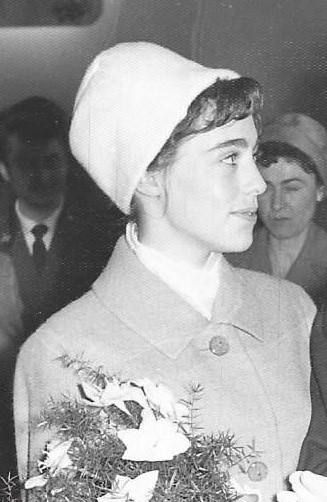There is a lingering distrust and aversion to anything foreign in our society

Stáhnout obrázek
Anna Grušová was born on 7 January 1942 in Oxford. Her parents, Eduard and Marta Goldstücker, emigrated via Poland to Great Britain in 1939 to escape the Nazi threat. Eduard Goldstücker was already a well-known left-wing intellectual in the interwar period and he joined the Communist Party in 1936. His relatives were victims of the Holocaust. After the end of the Second World War, the family returned to Prague. From 1943 Eduard Goldstücker worked in the Foreign Ministry in exile, he was the first Czechoslovak ambassador to Israel in 1950-1951. After his return to Prague on 12 December 1951, he was arrested and in 1953 sentenced to life imprisonment in a mock trial of Foreign Ministry employees. Anna, her mother and younger sister Helena lived with their grandparents in Jičín. After Goldstücker‘s release from prison in December 1955, the whole family soon moved to Prague. After graduating from eleven-year-secondary school, Anna studied English and Swedish at the Charles University. During her studies she met Jiří Gruša, whom she married in 1962 and in following years she gave birth to a daughter Milena and a son Martin. After the occupation of Czechoslovakia by Warsaw Pact troops, her parents emigrated to Great Britain and Jiří Gruša was prevented from literary activity for political reasons. In the early 1970s their marriage broke up. Political problems also affected Anna, who was subjected to professional discrimination until 1989 and did not escape the attention of the State Secret Police. Her son Martin died in 1989. After the fall of the communist regime, new professional opportunities opened up for Anna. She started translating and in 1993 she co-founded the Refugee Counselling Centre. In 2006, she was elected a representative of the Prague 5 Municipal District. She has a daughter Kristina from her second marriage to Josef Daniš.












